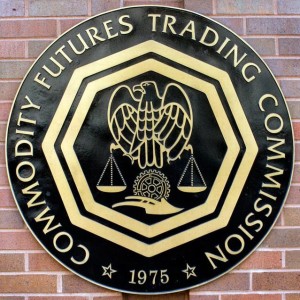 Clearinghouse equivalency continues to be a thorny issue between the Commodities Futures Trading Commission (CFTC) and European regulators.
Clearinghouse equivalency continues to be a thorny issue between the Commodities Futures Trading Commission (CFTC) and European regulators.
That was the message from CFTC Chair Chris Giancarlo as he testified in front of the House Committee on Agriculture.
“Conversations are ongoing. Relationships are cordial. The conversations are honest, and the dialogue is direct and candid. Having said that, we’re not much further than we were the last time I reported to you on this matter. I’m sorry to say, that the European parliament while they’ve made small concessions in the current proposal that’s before the parliament; it’s still, in substance, would require the imposition of European substantive law on American clearinghouses.” Giancarlo stated. “That means that our clearinghouses in Chicago and New York would have to, in addition to following US laws set by American Congress, follow European substantive law set by European parliament. It almost seems ludicrous but that’s what is being proposed.”
This issue first gained traction when Giancarlo toured Europe last summer warning Europeans who were then threatening to force American clearinghouses to follow their regulations even on transactions cleared in the US.
Giancarlo was answering a question from House Committee on Agriculture Chairman Mike Conaway, a Republican from the State of Texas.
Conaway noted that then European Parliament Chair Patrick Pearson testified in front of Congress years ago and supported the idea of equivalency, which means a respect by one regulator and hands-off approach for regulators in other places.
Giancarlo further noted that both Brexit and a decision by the London Clearinghouse became more liberal with collateral than the European regulators would have liked have caused the Europeans to take an about face on this issue.

But Giancarlo noted that American regulators don’t do this, and European regulators have not pointed to any specific thing that American clearinghouses have done which would warrant such a drastic action.
The discussion continued when Congressman David Scott, a Democrat from the State of Georgia, took his turn asking questions.
Ginacarlo noted that the CFTC and European regulators had reached an agreement in the summer 2016 for equivalency, an agreement which was supposed to avoid exactly the situation now unfolding.
“But then Brexit happened. Brexit seems to have changed everything and the European Commission now, as you say (Scott), seems to be throwing out that agreement with a different approach.” Giancarlo noted, “Under the European approach now…If a clearinghouse is big enough- including in their futures book- then European law will apply to the entirety of their operations.”
Scott then asked how significant a priority this was for the CFTC to “correct this.”
“Europe would come to us.” Giancarlo said, “Our law has to apply to your clearinghouses. I would say ‘Look, under our Constitution that’s just not going to happen.”
Giancarlo then described a global financial nightmare: “Their next step would be to tell European firms not to use our services.”
Giancarlo said that would hurt European firms more than US clearinghouses because many products- like dollar interest rate futures- only trade on the CME and “European hedge funds need to use those products.”
“If they continue to press this issue, it’s their (European) firms that will be hurt the most.” Giancarlo concluded.








